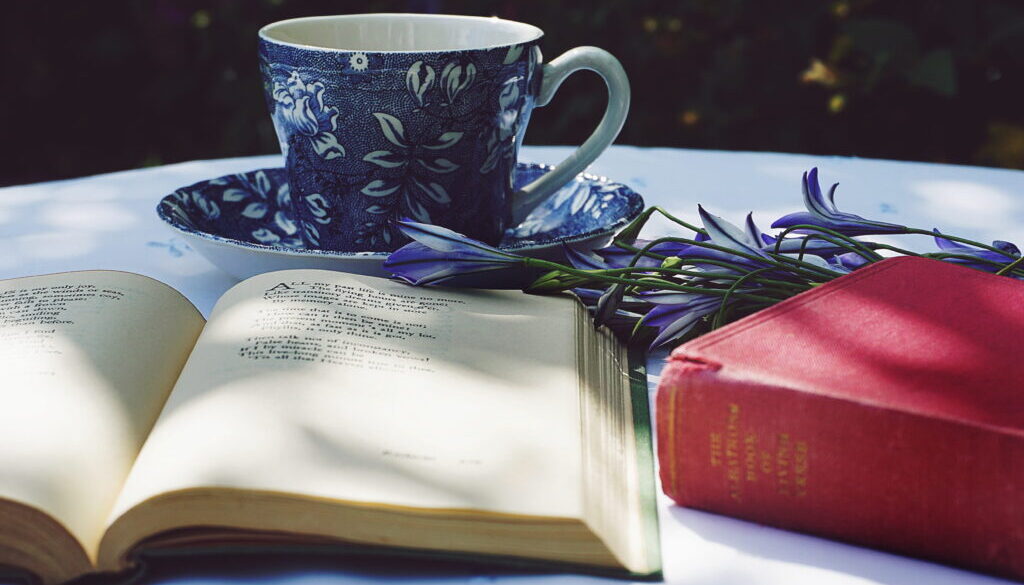Poetry and Wellness
By Aparna Mele

Most have probably never set out to read poetry for its health benefits, and furthermore most probably never realized reading poetry can actually improve your health. With many of us at home quarantined during the COVID pandemic, reading and writing poetry may take on a whole new incentive.
Did you know that reading poetry improves vocabulary and verbal dexterity? Poetry is usually difficult to understand the first time you read it. You have to slow it down and re-read it to adequately analyze the meaning of the words and determine what the author is attempting to convey and why the author chose to communicate with this particular combination of words.
Memorizing poems improves long-term brain health. This type of memorization essentially “exercises” your brain, giving it strength to retain information better. Memorizing passages of poetry over long periods of time, rather than cramming it all in at the last minute, can be a very effective strategy to teach your brain to remember, and is linked to a lower risk of Alzheimer’s.
Reading poetry encourages critical thinking skills. Understanding poetry requires analysis, so it’s no surprise people who read poetry are more likely to analyze information for bias and viewpoint. When we read poetry, we reflect in silence. It also develops empathy and insight. When a writer makes you connect with a situation or a character, this enhances your ability to detect and understand other people’s emotions, a crucial skill in navigating complex social relationships.
But why stop at reading? Even writing poetry is therapeutic! By expressing your feelings through poetry, you can begin to understand and heal from past trauma. By using metaphor and imagery, we can use poetry to help us convey and express things that we may feel unable to properly explain in basic conversation. Writing poetry helps us become more self-aware by recognizing our internal thoughts and feelings and can alleviate stress and anxiety. It fosters creativity because of its emphasis on symbolism and imagery, as well as the constraints of the art form. Learning how to use rhythm and meter to express your thoughts and feelings encourages your mind to think in novel ways and searching for the perfect word to convey your thought expands your vocabulary repertoire and exercises your brain!
From colorful words and vibrant verses to vivid imagery and double entendres, poetry brings joy and inspires us to stretch our imagination to a greater understanding of reality and consciousness. It can change our perspective. As Percy Bysshe Shelley wrote, “Poetry lifts the veil from the hidden beauty of the world, and makes familiar objects be as if they were not familiar.”
Especially during these trying times, if you want to calm your mind and still your soul, read or write a poem to help you pause, reflect, and feel the inner happiness that comes from expression!
Now please enjoy some poetry by a famous Nobel Prize winning poet as well as two new poets who are just beginning their journeys!
Your Laughter
By Nobel Prize winning Chilean poet, Pablo Neruda
Take bread away from me, if you wish,
take air away, but
do not take from me your laughter.
Do not take away the rose,
the lance flower that you pluck,
the water that suddenly
bursts forth in joy,
the sudden wave
of silver born in you.
My struggle is harsh and I come back
with eyes tired
at times from having seen
the unchanging earth,
but when your laughter enters
it rises to the sky seeking me
and it opens for me all
the doors of life.
My love, in the darkest
hour your laughter
opens, and if suddenly
you see my blood staining
the stones of the street,
laugh, because your laughter
will be for my hands
like a fresh sword.
Next to the sea in the autumn,
your laughter must raise
its foamy cascade,
and in the spring, love,
I want your laughter like
the flower I was waiting for,
the blue flower, the rose
of my echoing country.
Laugh at the night,
at the day, at the moon,
laugh at the twisted
streets of the island,
laugh at this clumsy
boy who loves you,
but when I open
my eyes and close them,
when my steps go,
when my steps return,
deny me bread, air,
light, spring,
but never your laughter
for I would die.
* * *
Green
By Luca Mele, age 11
Green is the first glimpse of spring.
The fresh, small blades of grass in a vast field.
The brand new vines curling up the trees.
Little bugs coming out to say “hip, hip, hooray!”
Moss covering almost everything in sight.
The contrast of the blooming buds and the small little leaves.
Those constant weeds popping up from in-between the cracks in the travertine tiles.
Little frogs croaking continuously at night.
The beginnings of a new chapter.
And on that cold, rainy, early spring day,
Everything shows up brighter against the gray sky above.
Yes, green is the first glimpse of spring.
* * *
Gardening
Written by Nisha Mele at age 13
As the carrot grows round and big
The juices inside gain deliciousness
I wonder if it’s ready to dig?
You just have to guess.
The mint grows like a weed
Useful in many ways,
It’s a great herb indeed.
Although it will be picked eventually, in the garden it stays.
The basil shoots from the ground
You must pick the flowers off the top
And pick the leaves before they are browned
What a great crop!
The cucumber plant is a vine
Climbing up the lattice
Helping it grow as straight as a line.
In our garden, cucumbers have a high status!
Gardening is quite fun
As long as we have the shining sun.



